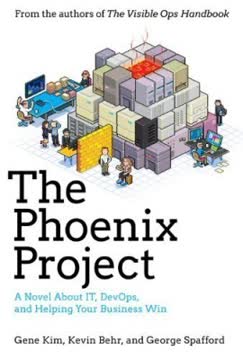Key Takeaways
1. Project Management is Essential for Everyone
"In today's world, we're all project managers—even if we don't realize it."
Universal skill. Project management is no longer confined to professionals with specific titles. It's a crucial skill for anyone who needs to organize tasks, meet deadlines, and achieve goals. Whether you're planning a family vacation, organizing a community event, or leading a work initiative, you're engaging in project management.
Everyday application. The principles of project management can be applied to personal and professional endeavors alike. By understanding and implementing these principles, you can increase efficiency, reduce stress, and improve outcomes in various aspects of your life. Recognizing that you're already a project manager in many ways can empower you to develop these skills further and apply them more consciously.
2. The Four Foundation Principles of Project Management
"People, Process, Product, and Project: These four Ps form the foundation of successful project management."
People-centric approach. Successful project management starts with understanding and valuing the people involved. This includes team members, stakeholders, and end-users. By focusing on effective communication, motivation, and collaboration, you can harness the full potential of your team.
Process optimization. Establishing clear, efficient processes is crucial for project success. This involves:
- Defining clear roles and responsibilities
- Setting up effective communication channels
- Implementing standardized procedures for task management
- Creating mechanisms for feedback and continuous improvement
Product focus. Keep the end goal in mind throughout the project. Regularly assess whether your efforts are aligned with delivering the desired outcome or product. This helps in maintaining direction and making informed decisions about resource allocation and priorities.
3. Clearly Define Project Goals and Scope
"A well-defined project is halfway to success."
SMART objectives. Begin every project by setting Specific, Measurable, Achievable, Relevant, and Time-bound (SMART) goals. This clarity helps in:
- Aligning team efforts
- Measuring progress effectively
- Avoiding scope creep
Scope definition. Clearly outline what is and isn't part of the project. This involves:
- Identifying deliverables
- Setting boundaries
- Agreeing on constraints and assumptions
By establishing a clear scope, you prevent misunderstandings, manage expectations, and reduce the risk of project failure due to unclear objectives or expanding requirements.
4. Create a Detailed Project Plan and Timeline
"A project without a plan is like a ship without a rudder."
Comprehensive planning. Develop a detailed project plan that outlines:
- Tasks and subtasks
- Dependencies between tasks
- Resource allocation
- Milestones and deadlines
- Potential risks and mitigation strategies
Realistic timelines. Create a timeline that accounts for:
- Task durations
- Team capacity
- Potential delays or setbacks
- Buffer time for unexpected issues
A well-structured plan and timeline serve as a roadmap for the project, helping to keep everyone aligned and focused on the end goal.
5. Assemble and Lead an Effective Project Team
"The strength of the team is each individual member. The strength of each member is the team."
Team composition. Assemble a diverse team with complementary skills and expertise. Consider:
- Technical skills required for the project
- Soft skills like communication and problem-solving
- Team dynamics and potential for collaboration
Leadership strategies. Effective project leadership involves:
- Setting clear expectations and goals
- Empowering team members to take ownership
- Providing support and resources
- Recognizing and rewarding contributions
- Fostering a positive and collaborative team culture
By building and nurturing a strong team, you create a foundation for project success and foster an environment where innovation and productivity can thrive.
6. Communicate Proactively with Stakeholders
"Communication is the lifeline of any project."
Stakeholder identification. Identify all stakeholders affected by or interested in the project. This may include:
- Team members
- Senior management
- Clients or customers
- External partners or suppliers
Communication strategy. Develop a proactive communication plan that addresses:
- Frequency and methods of communication
- Key messages and information to be shared
- Feedback mechanisms
- Escalation procedures for issues or concerns
Regular, clear, and transparent communication helps maintain alignment, manage expectations, and build trust among all project stakeholders.
7. Monitor Progress and Adapt to Changes
"The only constant in project management is change."
Progress tracking. Implement systems to monitor project progress:
- Regular status meetings
- Project management software
- Key Performance Indicators (KPIs)
- Earned Value Analysis
Adaptability. Be prepared to adjust your plan as circumstances change:
- Regularly reassess project goals and priorities
- Be open to feedback and new information
- Develop contingency plans for potential obstacles
- Foster a culture of flexibility and continuous improvement
By staying vigilant and adaptable, you can navigate challenges more effectively and keep your project on track despite unexpected changes.
8. Manage Risks and Solve Problems Proactively
"Anticipate problems, don't just react to them."
Risk assessment. Conduct thorough risk analysis at the project's outset and regularly throughout its lifecycle:
- Identify potential risks
- Assess their likelihood and potential impact
- Develop mitigation strategies for high-priority risks
Problem-solving approach. Adopt a proactive stance towards problem-solving:
- Encourage early reporting of issues
- Analyze root causes rather than just symptoms
- Involve team members in developing solutions
- Learn from past challenges to prevent future ones
By anticipating and addressing potential issues before they escalate, you can maintain project momentum and reduce the impact of unforeseen obstacles.
9. Balance Quality, Time, and Cost Constraints
"Good, fast, cheap: Pick any two."
The project management triangle. Understand the interplay between quality, time, and cost:
- Improving one aspect often requires compromising another
- Communicate trade-offs clearly to stakeholders
- Make informed decisions based on project priorities
Prioritization strategies. Develop methods to balance competing demands:
- Use techniques like MoSCoW (Must have, Should have, Could have, Won't have) for feature prioritization
- Implement agile methodologies to deliver value incrementally
- Regularly reassess and adjust priorities based on changing circumstances
By maintaining a balanced approach and making strategic trade-offs, you can optimize project outcomes within given constraints.
10. Close Projects Effectively and Learn from Experience
"A project is truly complete only when you've learned from it."
Formal closure. Implement a structured process for project closure:
- Ensure all deliverables are completed and accepted
- Conduct a final review with stakeholders
- Archive project documentation
- Recognize and celebrate team achievements
Lessons learned. Conduct a thorough post-project review:
- Analyze what went well and what could be improved
- Gather feedback from team members and stakeholders
- Document insights and recommendations for future projects
- Share learnings across the organization
By closing projects effectively and learning from each experience, you continuously improve your project management skills and set the stage for future successes.
Last updated:
FAQ
What's "Project Management for the Unofficial Project Manager" about?
- Overview: The book is a guide for individuals who find themselves managing projects without formal training or a project manager title. It provides practical tools and principles to help them succeed.
- Core Principles: It focuses on three main principles: Create Value, Lead People, and Manage Processes, which are essential for effective project management.
- Target Audience: The book is aimed at "unofficial" project managers, typically knowledge workers who manage projects as part of their regular job responsibilities.
- Real-World Application: It includes real-life examples and case studies to illustrate how these principles can be applied in various work environments.
Why should I read "Project Management for the Unofficial Project Manager"?
- Practical Tools: The book offers easy-to-use tools and techniques that can be immediately applied to manage projects more effectively.
- Confidence Boost: It aims to boost the confidence of unofficial project managers by providing them with a structured approach to project management.
- Universal Relevance: In today's work environment, project management skills are increasingly important for all professionals, regardless of their official job title.
- Improved Outcomes: By following the book's guidance, readers can expect to see improvements in project outcomes, efficiency, and team engagement.
What are the key takeaways of "Project Management for the Unofficial Project Manager"?
- Create Value: The primary goal of any project should be to deliver value to the customer, which is often overlooked in favor of meeting deadlines and budgets.
- Lead People: Effective project management involves inspiring and leading people, not just managing tasks and processes.
- Manage Processes: A structured process is essential for project success, but it should be flexible enough to adapt to changes and new information.
- Five Foundational Behaviors: Listening first, clarifying expectations, extending trust, practicing accountability, and demonstrating respect are crucial for leading a successful project team.
What are the best quotes from "Project Management for the Unofficial Project Manager" and what do they mean?
- "We are all project managers now." This quote emphasizes the increasing importance of project management skills in all professional roles, not just those with the title of project manager.
- "Create value, lead people, manage processes." This encapsulates the book's core principles, highlighting the need to focus on delivering value, leading teams effectively, and managing processes efficiently.
- "Operations keeps the lights on, strategy provides a light at the end of the tunnel, but project management is the train engine that moves the organization forward." This quote underscores the critical role of project management in driving organizational progress and achieving strategic goals.
- "The great enemy of communication is the illusion of it." This highlights the importance of clear communication and setting shared expectations to avoid misunderstandings in project management.
How does "Project Management for the Unofficial Project Manager" define 'unofficial project manager'?
- Role Definition: An unofficial project manager is someone who manages projects as part of their job but does not have a formal project manager title or training.
- Common Scenario: This role is common in today's work environment, where employees are often required to manage projects alongside their regular duties.
- Skill Development: The book provides tools and techniques to help these individuals develop the necessary skills to manage projects effectively.
- Value Creation: Unofficial project managers are crucial for delivering business value, as they often handle projects that are essential to organizational success.
What is the FranklinCovey Project Management Process mentioned in the book?
- Five Steps: The process includes five steps: Scope, Plan, Engage, Track & Adapt, and Close, which guide project managers through the project lifecycle.
- Combination of Methods: It combines elements from both traditional Waterfall and Agile methodologies to provide a flexible and practical approach.
- Focus on Value: The process emphasizes creating value for stakeholders and adapting to changes to ensure project success.
- Practical Tools: The book provides tools and templates for each step, making it easier for unofficial project managers to apply the process in real-world scenarios.
What are the Five Foundational Behaviors in "Project Management for the Unofficial Project Manager"?
- Listen First: Prioritize understanding team members and stakeholders before making decisions or giving directions.
- Clarify Expectations: Ensure that everyone involved has a clear and shared understanding of project goals and responsibilities.
- Extend Trust: Trust team members to fulfill their commitments, which can lead to increased motivation and accountability.
- Practice Accountability: Hold yourself and others accountable for meeting commitments and achieving project goals.
- Demonstrate Respect: Treat all team members and stakeholders with respect, fostering a positive and collaborative project environment.
How does the book suggest handling project risks?
- Risk Identification: Begin by identifying potential risks that could impact the project, considering factors like finance, team strength, and technology.
- Prioritization: Assess the impact and probability of each risk to prioritize which ones need immediate attention.
- TAME Strategy: Use the TAME approach to manage risks: Transfer, Accept, Mitigate, or Eliminate them based on their priority.
- Communication: Keep stakeholders informed about risks and involve them in developing strategies to manage them effectively.
What is the role of a Project Scope Statement according to the book?
- Definition: The Project Scope Statement defines the main elements of the project, including its purpose, desired results, and constraints.
- Clarity and Direction: It provides a clear direction for the project, ensuring that all stakeholders have a shared understanding of what the project aims to achieve.
- Avoiding Scope Creep: By clearly defining what is and isn't included in the project, the scope statement helps prevent scope creep and keeps the project on track.
- Stakeholder Approval: It serves as a formal agreement among stakeholders, ensuring that everyone is aligned before the project begins.
How does "Project Management for the Unofficial Project Manager" address team engagement?
- Cadence of Accountability: Establish regular and frequent Team Accountability Sessions to keep the team focused and committed to project goals.
- Ownership of Commitments: Encourage team members to make their own commitments, fostering a sense of ownership and responsibility.
- Performance Conversations: Hold regular performance conversations to address any issues and celebrate successes, maintaining high levels of engagement.
- Five Foundational Behaviors: Apply these behaviors to create a positive team environment where members feel valued and motivated.
What is the difference between scope creep and scope discovery as explained in the book?
- Scope Creep: Refers to the gradual expansion of a project's scope without proper control, often leading to delays and budget overruns.
- Scope Discovery: Involves identifying new opportunities or requirements that add significant value to the project, warranting a change in scope.
- Decision Criteria: The book provides guidelines to help project managers distinguish between the two and decide whether a change is justified.
- Project Change Request: Use this tool to formally evaluate and document any proposed changes to the project scope, ensuring they align with project goals.
What are the benefits of using the Project Status Report tool in the book?
- Progress Tracking: It helps track the project's progress against the plan, identifying any areas that are at risk or in danger.
- Stakeholder Communication: Keeps stakeholders informed about the project's status, fostering transparency and trust.
- Problem Identification: Highlights issues that need attention, allowing the team to address them proactively and avoid potential setbacks.
- Value Addition: Provides a platform for stakeholders to offer feedback and suggestions, potentially adding value to the project.
Review Summary
Project Management for the Unofficial Project Manager receives high praise for its practicality and accessibility. Readers appreciate its step-by-step guides, real-world examples, and actionable advice suitable for both novices and experienced managers. The book covers various methodologies and provides valuable insights for improving project outcomes. Most reviewers find it helpful, concise, and well-organized, particularly for those new to project management. Some highlight its useful templates and tools for organizing projects and teams. Overall, it's considered an indispensable resource for unofficial project managers.
Similar Books










Download PDF
Download EPUB
.epub digital book format is ideal for reading ebooks on phones, tablets, and e-readers.






